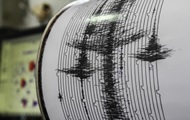30 years have passed since the fall of the Soviet Union… In 1991, on December 26, after 70 years of existence, the union between the soviet socialist republics.
Since then, 14 member states of the union have regained their independence.
Years after the fall, the dissolution of the Soviet Union it has been described by the President of the Russian Federation as the greatest geopolitical catastrophe of the 20th century.
Meanwhile, Moscow it continues to try to claim influence in the post-Soviet sphere.
What legacy has the Soviet Union in its former Member States? What challenges do these states face? Especially Georgia, considering that part of its sovereign territory has been occupied by the Russian army.
In the center of Tbilisi there is a place where the past comes alive. Here are sold old personal objects that recall the old soviet empire, which lasted 70 years.
There will always be a customer looking for a bust with the portrait of Stalin, Soviet passports and military decorations.
For some, they are quirky and trendy collectibles, but for others, they bring back horrible memories that we hope won’t be repeated again. For some, these symbols represent the satisfactions of their youth, when the food was abundant and, if you were lucky, you could also get free vacations.
“There was nothing, there was no economy. If you wanted to buy something, you had to go to Moscow and bring it all from there. Some feel nostalgia for Soviet times__, to a greater or lesser extent for the stability of the time “, points out one of the citizens of Tbilisi
“We were calm from the socio-economic point of view, everything was within our reach: the possibility of traveling, a high salary and work”, says another resident of the Georgian capital.
In the streets of TbilisiHere and there, you can still find different examples of Soviet symbols, such as the infamous hammer and sickle, although for younger generations, these symbols are mere interesting objects. They are too young to remember the experiences of Soviet times.
“The most important thing is that Soviet Union it reminds us of what a terrorist state was like. A state that did not allow its citizens the free exercise of politics, in which freedom is out of the question and is prohibited “, indicates another Tbilisi neighbor.
“The Soviet past continues to influence today’s society in many ways, old approaches and perceptions of life continue to shape the lives of young people, and that is sad”, highlights another resident.
In 1991 it was shown that the involuntary binding of 15 states of the Soviet Union it was not as unbreakable as thought. A disintegrating imperialism ruined thousands of lives. But 30 years later, the Russian Federation it continues to try to control its former colonies and regards those states as part of its sphere of influence.
Lasha Bakradze, is a historian and emphasizes: “Vladimir Putin has declared that the dissolution of the Soviet Union it was the greatest geopolitical catastrophe of the 20th century. Now we see how Putin and this Russia attempt to declare post-Soviet states part of the sphere of influence of Moscow. In a way, they have come to terms with the fact that they have lost the Baltic, those states have managed to arrive on time and join the EU and NATO. However, you can see how many problems there are in Georgia and Ukraine. “
Imperialism took its toll on the people who lived in the Soviet Union and its aftermath is often manifested in your thoughts and actions even without realizing it.
Oliver Raisner, professor at Ilia State University, says: _ “The political culture of the Russian Federation of the other post-Soviet states that emerged as nation states from it continued. As a colleague of mine said very clearly, “You can get Georgia out of the Soviet Union, but not the Soviet Union out of Georgia.”
Despite these challenges, the generation that looks to the West with hope expressed its will very clearly through the referendum. This generation has firmly confirmed that it will never renounce its statehood and personal freedom.
– .


